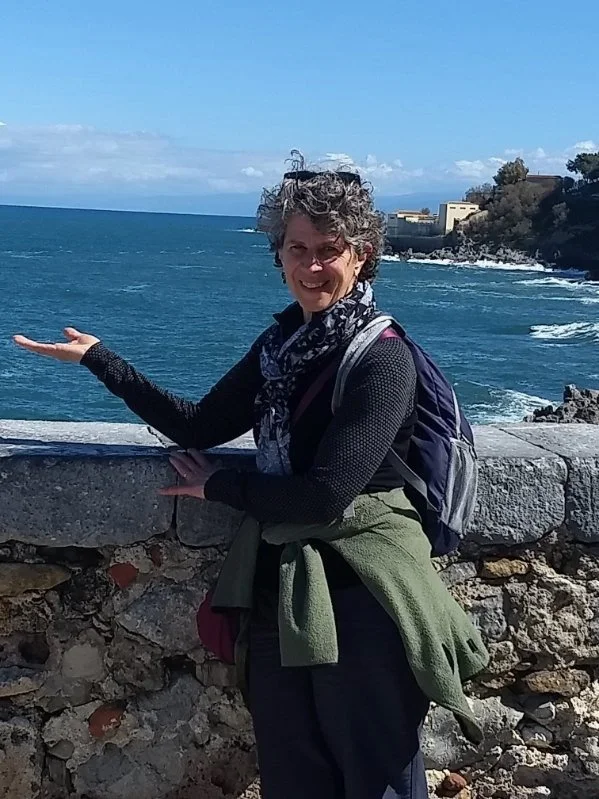Volunteer Highlight: Regina Baratta
From Teaching to Stream Adventures: Regina Baratta's Return to Environmental Education
When a former middle school science teacher discovered she could reignite her passion for education—this time outdoors and in wading boots—she knew she'd found the perfect volunteer opportunity.
Regina Baratta spent 27 years in the classroom, teaching middle school science and bringing students to local streams to discover the wonders of aquatic life. After leaving the profession, she might have left that chapter behind entirely. But when Emily Sutton from Haw River Assembly visited her Master Naturalist certification class to discuss volunteer opportunities, something clicked.
"She mentioned they were trying to get their stream investigation program up and running again," Regina recalls. "That kind of rang a few bells with me."
Those bells were the echoes of countless successful field trips, of students' faces lighting up at their first glimpse of life beneath the water's surface, of the joy that comes from learning outside the confines of a classroom.
A Winding Path to Education
Regina's journey to teaching wasn't a straight line. After earning her biology degree, she spent 12 years as a professional cook in the restaurant industry. When colleagues told her she had a gift for training and teaching, she decided to pursue her teaching certification.
Now living in Orange County, Regina is committed to continuing her work with HRA's Stream Investigation Program (SIP), partnering with Haw River Assembly’s Environmental Educator, Jessica Black, to bring hands-on environmental education to local students—work she plans to continue beyond her Master Naturalist impact project.
The Crayfish That Changed Everything
Ask Regina about her favorite moment with the SIP program, and she doesn't hesitate. It was a group of students from Alamance County, sporting brand-new white sneakers, hesitant to step into the stream. They hung back, trying to look cool—until a girl in their group caught the first crayfish. The boys got jealous and suddenly, they had to compete with each other.
"Then it became like a little contest," Regina laughs. "Who could get the most crayfish? They were just so excited to handle a live creature. I think they were blown away by what's actually in the water."
The pristine sneakers? They got a little dirty, but the students were there for it.
"Once they find their first macroinvertebrate or a crayfish, they're hooked," Regina explains. "It's just really important for them to get outside. So many kids are so caught up in screens."
Why It Matters
For Regina, the Stream Investigation Program represents something essential that's missing from many students' lives: unstructured time in nature, learning through discovery rather than worksheets.
"If you don't understand it, you can't protect it or appreciate it," she says. "Just getting kids comfortable with being outside is important."
She's been pleasantly surprised by what she's discovered in local streams—finding healthy populations of macroinvertebrates in waterways that didn't look particularly pristine. It's given her hope for the Haw River's future, especially after learning about HRA's advocacy work addressing pollution concerns.
"I think it's wonderful that you guys are the advocates," she says, noting that she's seen HRA featured in news coverage multiple times this year. "It's a beautiful river; people want to enjoy it and make it safe for the future."
An Invitation to Get Involved
When asked what she'd tell someone considering volunteering with HRA, Regina's answer is simple: "You're protecting the Haw River, which is a source of drinking water for people. That alone is a good reason to be an advocate."
She also appreciates the variety of ways to engage with Haw River Assembly—from stream cleanups to educational programs to social events. "If you're looking for a way to engage with your community, you guys have it."
As for Regina, she's already looking ahead to Spring, planning more lessons with Jessica and continuing to help students discover that the most exciting classroom has no walls—just water, rocks, and the creatures that call our streams home.
The Stream Investigation Program brings environmental education directly to schools throughout the Haw River watershed. To learn more about volunteering or bringing SIP to your school, visit our website or contact our education team.


